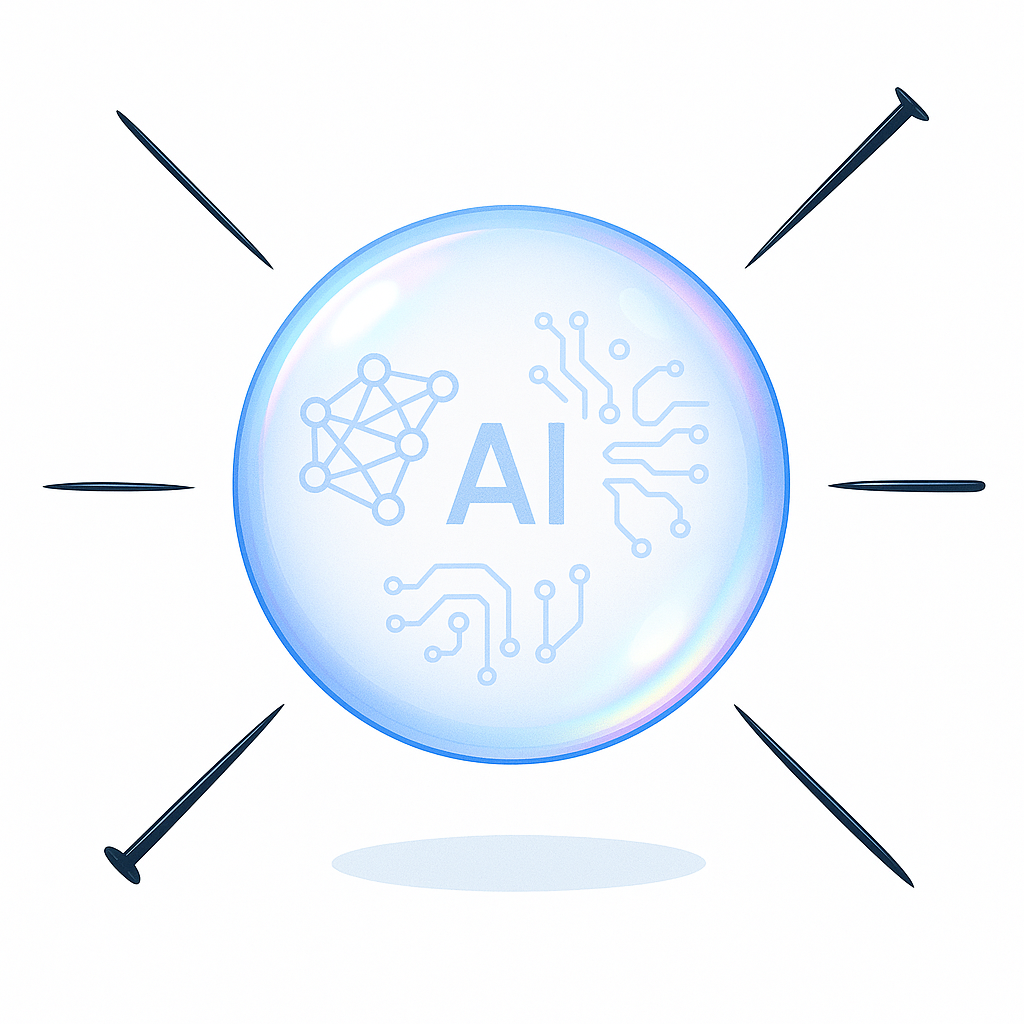There’s a popular argument going around that goes something like this:
- AI is a bubble
- It can be a bubble and still survive later, like the .com bubble
Basically the back and forth is the following.
- PERSON1: “AI is a bubble.”
- PERSON2: “No, it isn’t. Bubbles are when things turn out to be hype, and they get proven wrong and die.”
- PERSON1: “No, it just means that it’s overinflated, like the .com bubble. We still have the internet don’t we?”
This sounds like a good argument, but I don’t think it is.
Notice that we’re using the word “bubble”.
People who think AI is a bubble could say it’s “overheated” or it’s “inflated”—which are descriptive terms that definitely apply.
But they’re not using those terms. They’re using the term “bubble.”
So, what is the single most defining characteristic of a bubble? Like…in real life.
Bubbles pop.
That’s the whole point of bubbles. When you go into nature, do you see bubbles that expand and contract and survive?
No. They pop. It’s kind of their main characteristic!
So here’s a better explanation of this whole thing.
The .com thing was a bubble. And it popped. Because that’s what bubbles do. The confusion comes from thinking that the bubble was the internet itself—like Marcus did above—which obviously hasn’t gone away.
The bubble was not the internet.
The .com bubble was the belief that if you took your mid-ass business to the internet, you would instantly become rich.
That is what popped.
So, the trick with this whole AI argument is to find the claim that one thinks is the actual bubble.
Do people actually believe that if you just “add AI” to what they have, they’ll instantly become millionaires? Maybe. Or maybe a year or two a go. But most of those people have already collided with reality.
No. I think what most anti-AI people like Marcus (Hutchins, and Gary Marcus as well) actually feel is the bubble, is my position here:
- Modern AI (or gen AI, or whatever you want to call it) will lead to foundational change in how business is done
- It will displace tens or hundreds of millions of knowledge workers in the next 3-10 years
- It will force us to rethink not just the current labor-based economy, but the whole concept of human work and usefulness itself
If you talk to somebody who thinks AI is a bubble, they don’t tend to believe those things. Quite the opposite.
Marcus Hutchins, a buddy of mine who I debated earlier this year, and who wrote the comment above, thinks AI is nothing but overhyped autocomplete.
So the question isn’t whether tons of overheated AI investors who have no real idea what’s going on will lose money. There will be billions lost to this entire thing. It’s already happened, it’s happening now, and it will continue. Everyone knows that. That’s not the argument.
So what it actually comes down to is whether or not you believe this much fundamental change—as described above—is going to come from AI.
It comes down to whether you think that is a bubble, i.e., a foolish belief that was popular for a time that everyone will soon know was untrue.
Because it will pop.
- Bubbles aren’t overheating or hype cycles; they are false beliefs about reality that everyone eventually figures out were false
- We use the bubble metaphor in business because the beliefs —like real bubbles in nature—don’t still exist after they pop
- People claiming AI is a bubble need to clarify what they are talking about
- If they’re talking about the 2023-2024 “chatbots = rich”, that’s a bad argument because hardly anyone believes that anymore
- But if they think the bubble is the idea that “Modern AI will significantly transform business and the global economy, and that it’ll lead to massive unemployment for knowledge workers”, then—in my opinion—they’re just wrong
So, entering into these discussions, it’s important to pin down what bubble means to each person, and then proceed with the actual arguments.


